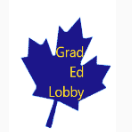Graduate students in research training need advocacy different from undergraduate students, otherwise why distinguish the two?
Graduate students attend cash cow programs in Canadian universities. Prestigious MBA programs can cost a $100 grand in Canada, not that they are any better than a cheaper program. Students pay for the prestige and the opportunity to network with others who have the means to pay the exorbitant tuition. These cash cow MBA students would be at odds with CFS campaigns designed to bring down the cost of education. Do they want their student union fighting for lower tuition? Do they want their student union fighting for higher, more exclusive tuition?
At a national level, Canadian graduate student associations and undergraduate associations can join the CFS or CASA. Neither focuses on graduate student concerns, although the CFS does have a graduate student caucus.
Graduate students have real needs. Needs that go unaddressed. Advocacy around times to completion and attrition have yet to make the agenda of a national advocacy organization for Canadian students. If GSAs get action on undergraduate student issues from national industry groups and no representation on graduate student issues, then why even join CFS or CASA or the provincial industry group in Quebec, the UEQ? Canadian graduate students could save money. CFS is costly to miss the mark for so many years on graduate student needs.
Graduate students, who lack importance in the agendas of CFS or CASA to take up their issues, might be better served as a part of a larger student association consisting of graduate and undergraduate students. FACEUM combines reps for graduate students as part of the overall student union. Would this be a better model than the grad and undergrad division that presently exists? Unless agendas specific to graduate education come from graduate student associations, what is the point of a separation between grad and undergrad representation?
Graduate student associations in Canada notoriously defederate from CFS and tear down their own national or provincial industry groups, so as at 2016 no stable, long-lasting national or provincial group manages continuity and stability of campaigns across the yearly changes in graduate student union leadership.
Why hasn’t CFS or CASA campaigned for grad students on times to completion and attrition in all these years? The campaigns and issues addressed center on the undergrad, fees, minority groups and tuition. While CFS urges Justin Trudeau to keep his promises to Indigenous students, CFS needs to find the problems in grad schools buried under pluralistic ignorance and silent exits. CFS campaigns need to better address issues unique to grad students or grad students need to find better industry group representation. Without industry group coordination and continuity, GSAs have little hope of mounting a campaign to bring down times to completion and attrition statistics.



